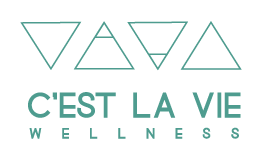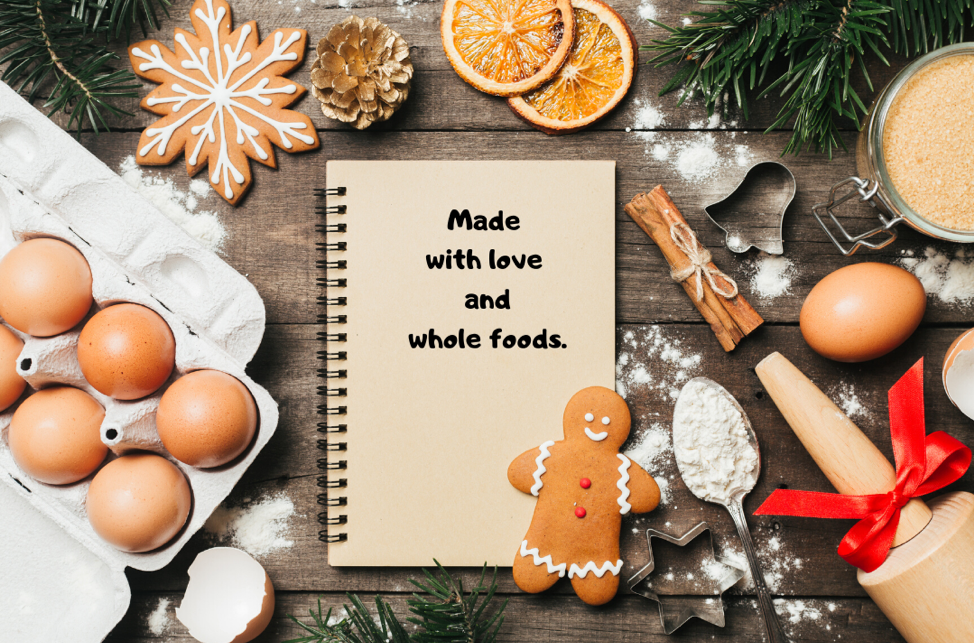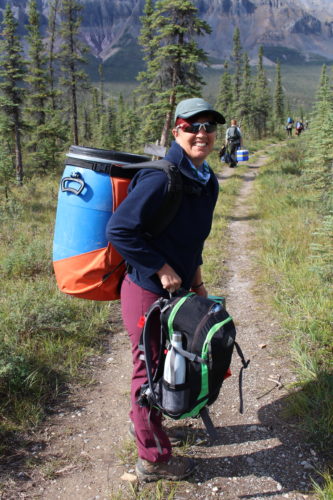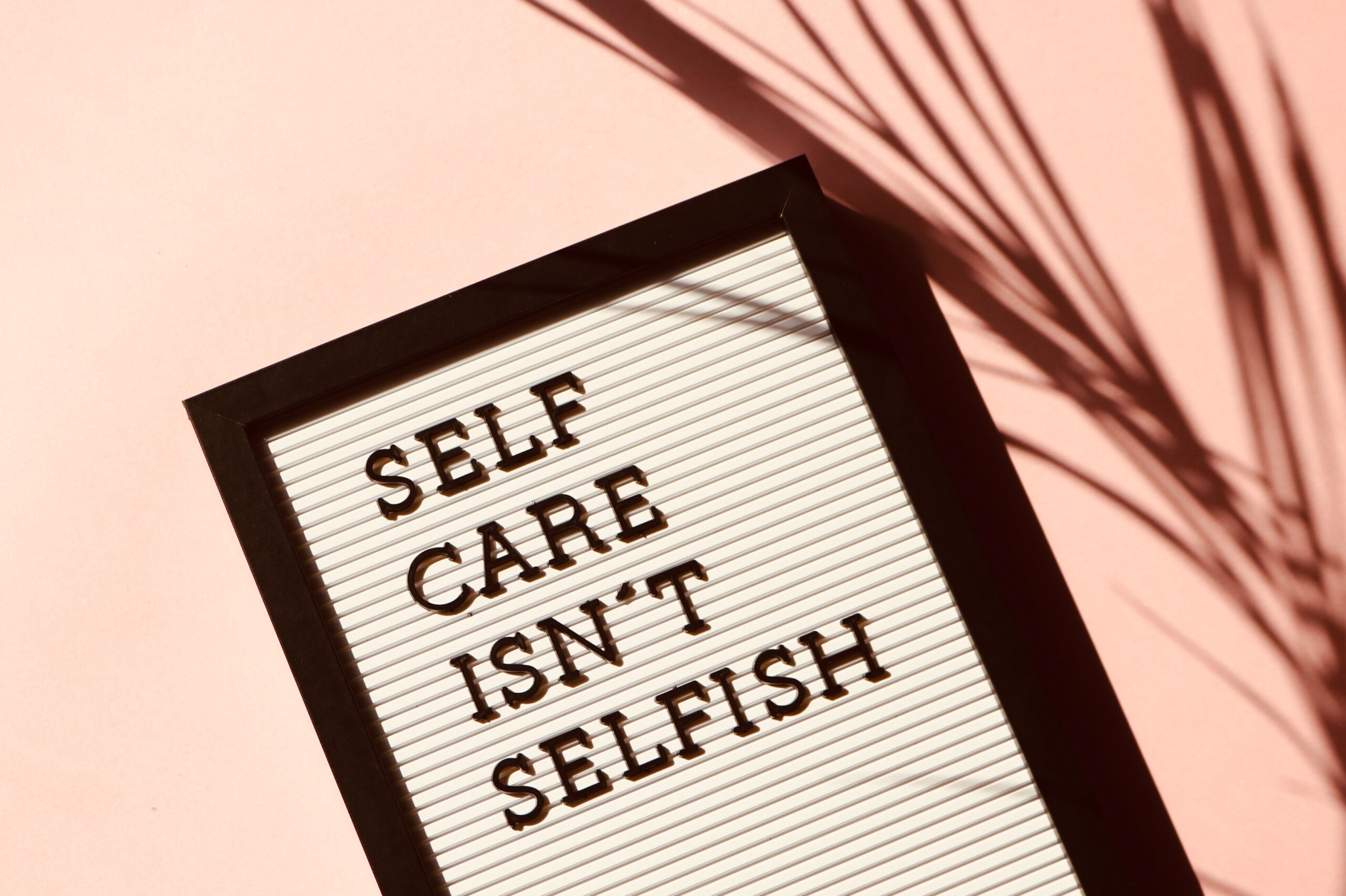5 Tips to Help You Stay on Track
By Lyne Desforges, Registered Holistic Nutritionist & Culinary Nutrition Expert
Most people associate the holiday season with a 5-lb weight gain but it doesn’t have to be. You can still enjoy the good food and the fun times. Practising a little mindfulness and gratitude will go a long
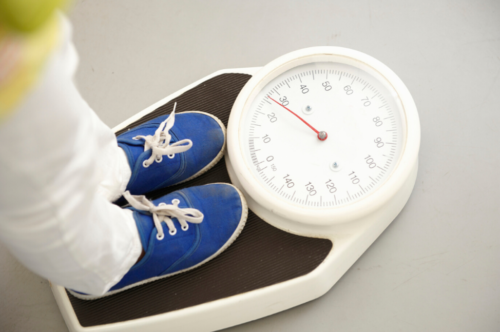
way in helping you stay on track.
Here are our 5 top tips for staying focused on your health and wellness goals.
-
Have a plan and stick to it.
Before heading out to a cocktail party, a family dinner, or a night out with
friends, decide what you will permit for that evening. For example, you may choose to have only one drink for the whole evening. Or you may decide that you will taste everything but in small quantities. Or finally, you might choose to skip the dessert. Whatever your plan is, make sure to stick with it.
It is also good to get organized at home. Prep and plan your meals in advance to prevent the temptation of buying fast or processed food. Meal planning is also an excellent tool to help maintain a healthy weight. -
Eat only when truly hungry.
All those holiday treats look very alluring, but do you really need to eat right now? Are your truly hungry or is it something else? Identify what is the trigger for your need to eat (i.e. boredom, social pressure, fatigue, thirst, etc.). Have a big glass of water instead and wait 15 minutes. If you are still truly hungry, have a nutritious snack. Check out our free Eat Clean for the Holidays cookbook for healthy snack ideas. -
Reduce or eliminate alcohol.
Avoid all those sugary cocktails and the bingeing on alcohol. These are empty calories that provide no nutrient value to the body. It actually affects your immune system and your sleep. So instead of opting for one or two glasses of wine, why not make it one spritzer and eliminate half of the alcohol. Or even better, try one of our suggested drinks in our free Clean Eats for the Holidays cookbook. -
Stick to your fitness routine.
It’s even more important to keep active during the holidays, to burn the excess calories you may be ingesting. Add a walk after every meal to help with digestion. Get out and enjoy the beautiful weather. How about some snowshoeing, skating, or tobogganing? Play outside like when you were a child.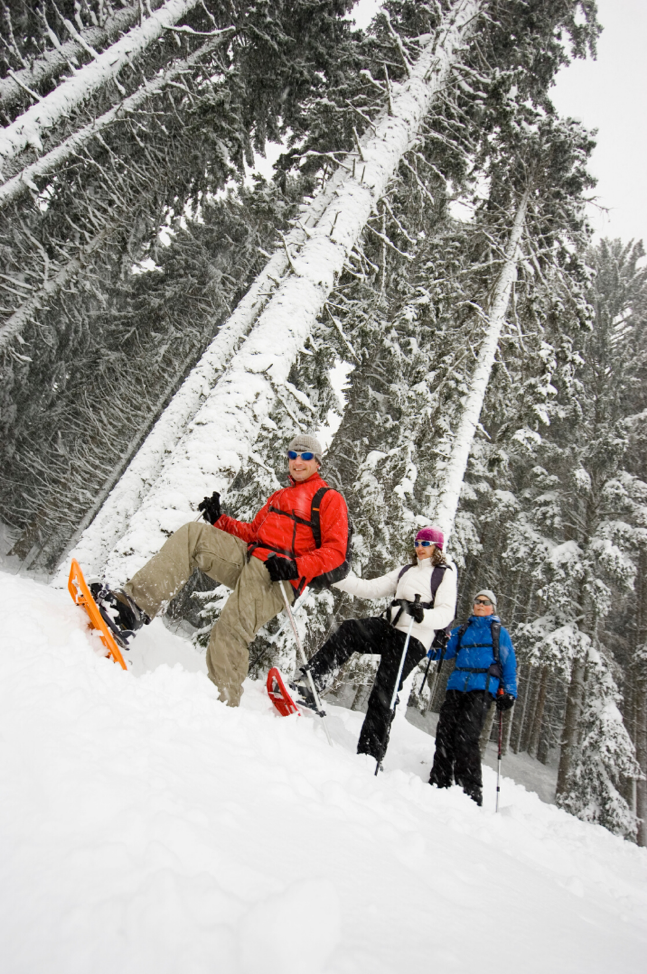
-
Be mindful and use moderation.
Being a mindful eater means sitting down at a table, chewing slowly, and savouring every bite. Doing this means you will automatically eat less. Include the practice of Hara Hachi Bu in your eating routine. This is the Japanese art of eating till only 80% full. Use moderation in your portions and frequency of meals.
Allow yourself one guilt-free day where you can indulge on great homemade foods! And lastly, practice gratitude every day. Being in a state of gratitude not only injects you with a sense of happiness and joy but it has many medical benefits as well. So, take a moment to be thankful for all the bounty that surrounds you…the bounty of food, good health and loved ones.
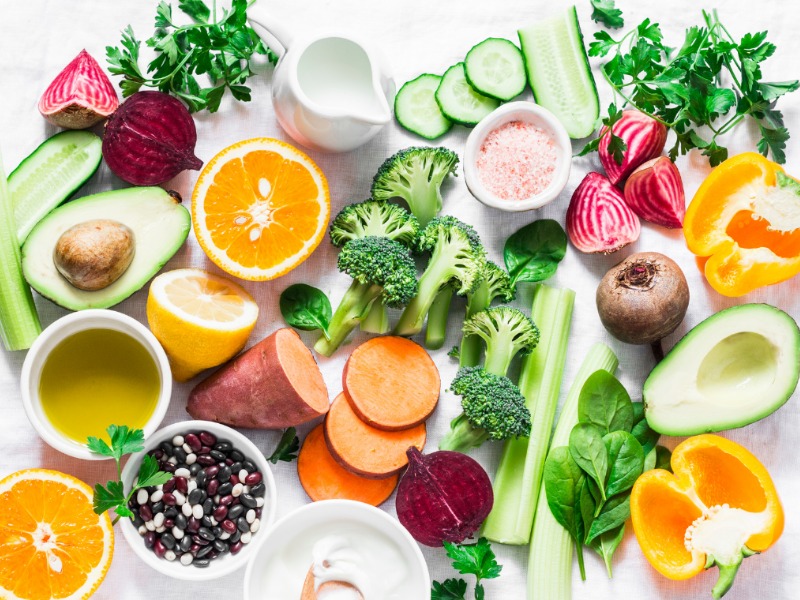
By Lyne Desforges, Registered Holistic Nutritionist & Culinary Nutrition Expert
Cold and flu season is here. But don’t let that cramp your style and limit you from doing what you love! Now is the time to strengthen your immune system so you can do your favourite activities all year long. Food plays an integral role when it comes to your overall health. Eating whole unprocessed foods, limiting your sugar and alcohol intake will go a long way towards strengthening your immune system and improving your overall physical, mental, and emotional health. This study showed that when participants consumed 100g of either honey, fructose, glucose, or sucrose (table sugar), the activity of their immune cells decreased for 5 hours. Now that is something to consider before reaching for that big glass of orange juice in the morning. So stay away from the sweets and embrace foods rich in complex carbs, healthy fats, and proteins. And for that little extra, consider incorporating these five key nutrients for a strong immune system.
5 Key Nutrients to Strengthen Your Immune System
Fermented Foods
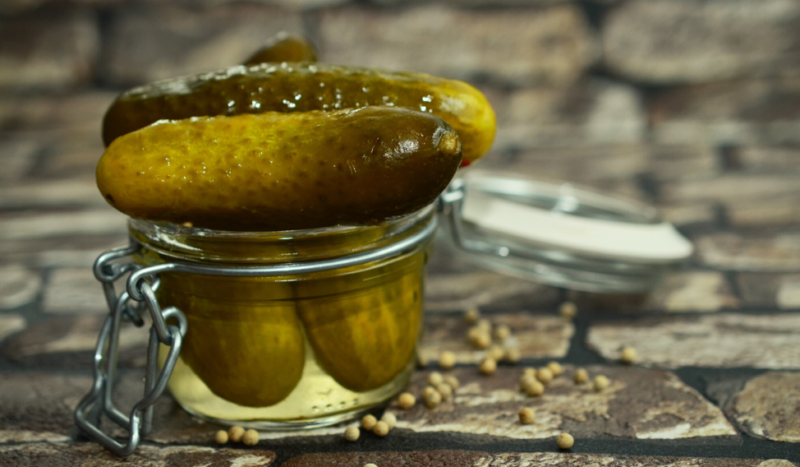
Over 70% of our immune system resides in our gut. Fermented foods contain probiotics (beneficial bacteria) that support a healthy microbiome. According to this study, “probiotic organisms are claimed to offer several functional properties including stimulation of immune system.” To strengthen your immune system, consider adding some of the probiotic-rich foods to your daily meals: yogurt, natural pickles, kimchi, sauerkraut, kombucha or miso.
Vitamin C Foods
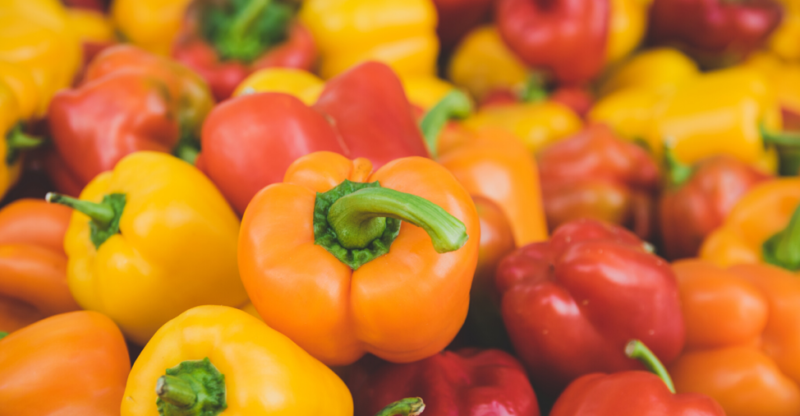 Vitamin C is an antioxidant and water-soluble nutrient that has long been touted as the ‘go to’ nutrient to combat or even prevent the onset of colds and flus. Humans are one of only a handful of mammals who cannot make or store vitamin C. Therefore it is crucial to add lots of vitamin C foods on a daily basis to maintain a strong immune system. Our favourites are bell peppers, tomatoes, squashes, citrus fruits and berries.
Vitamin C is an antioxidant and water-soluble nutrient that has long been touted as the ‘go to’ nutrient to combat or even prevent the onset of colds and flus. Humans are one of only a handful of mammals who cannot make or store vitamin C. Therefore it is crucial to add lots of vitamin C foods on a daily basis to maintain a strong immune system. Our favourites are bell peppers, tomatoes, squashes, citrus fruits and berries.
Vitamin D Foods
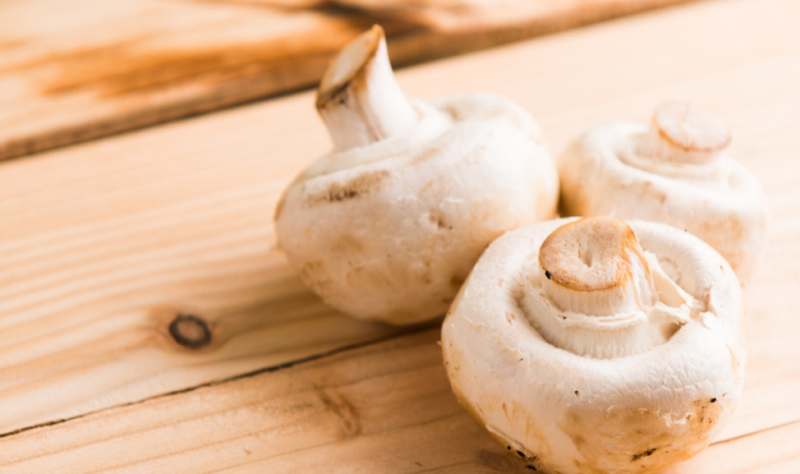 As sunlight diminishes during the fall & winter months, it is important to get your daily dose of vitamin D through other sources, like food. Numerous studies have shown a correlation between a deficiency in vitamin D and a weaker immune system. Foods high in this nutrient include eggs, wild-caught salmon, mackerel, sardines and mushrooms. However, if you live in the Northern Hemisphere, it is often recommended to supplement with vitamin D from September to May in order to get enough of that crucial nutrient. Always consult with your healthcare practitioner before taking any supplements.
As sunlight diminishes during the fall & winter months, it is important to get your daily dose of vitamin D through other sources, like food. Numerous studies have shown a correlation between a deficiency in vitamin D and a weaker immune system. Foods high in this nutrient include eggs, wild-caught salmon, mackerel, sardines and mushrooms. However, if you live in the Northern Hemisphere, it is often recommended to supplement with vitamin D from September to May in order to get enough of that crucial nutrient. Always consult with your healthcare practitioner before taking any supplements.
Foods high in Zinc
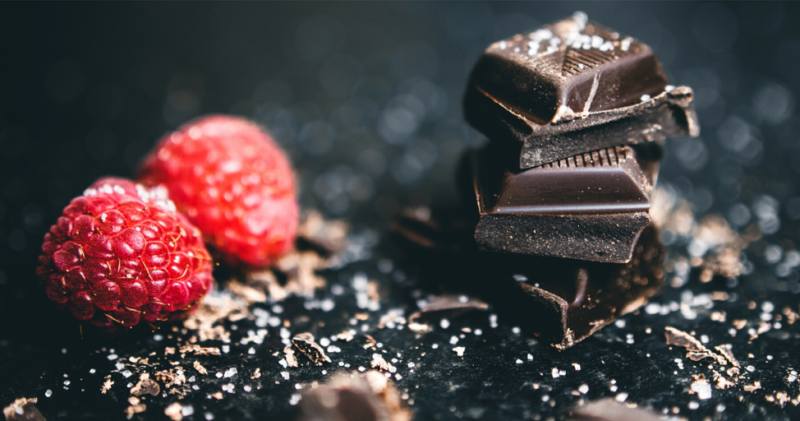
Zinc is an essential mineral with great anti-oxidative properties which helps to keep your immune system robust and healthy. Like vitamin D, many studies have observed a direct correlation between a zinc deficiency and a weaker immune system. Consuming foods high in this mineral such as organic meats, nuts & seeds, shellfish and dark chocolate will strengthen your immune system. As an added bonus, dark chocolate also contains theobromine that may help to inhibit coughs.
Herbs and Spices
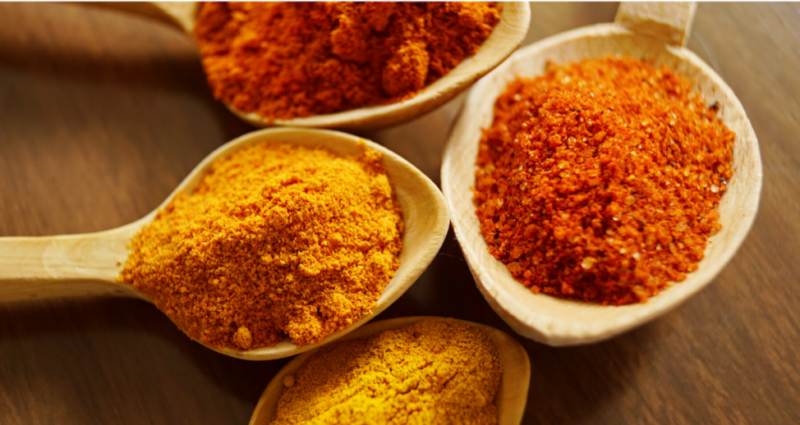
Adding herbs and spices to your food not only enhances the flavour of your meal, but it adds amazing health benefits. Turmeric, ginger, cinnamon, echinacea, garlic and ginseng are herbs and spices with high antioxidant values and have been used for centuries to promote a healthy body. Incorporating these herbs and spices into your daily diet can have a positive immune boosting effect.
A Balanced Lifestyle
Maintaining a clean healthy diet full of whole foods will certainly take you on the right path to great health and a strong immune system. But it doesn’t stop there. It is important to also manage your stress, get at least 7 hours of good sleep, and exercise regularly.
Enjoy the “cold and flu season” without the sniffles and coughs. Stay strong in both body and mind. Embrace life and be grateful for the beauty that surrounds you.
by Lyne Desforges, Registered Holistic Nutritionist
Sobering Statistics
According to the Canadian Cancer Society “It is estimated that about 1 in 8 Canadian women will develop breast cancer during their lifetime and 1 in 33 will die from it”
If you know 8 women, then statistically one of them will get breast cancer. That is a sobering thought.
My family history
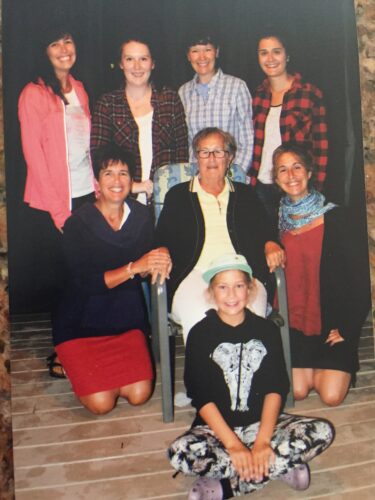 In our family, that “one in 8” is my mother. She had breast cancer… TWICE! However, she is a cancer survivor and thriving at age 87. Now it doesn’t end there. Her mother and her sister also had breast cancer. I often wonder if I will be part of this “family tradition”. If not me, then will it be my sister? What about my two daughters, or even my son?
In our family, that “one in 8” is my mother. She had breast cancer… TWICE! However, she is a cancer survivor and thriving at age 87. Now it doesn’t end there. Her mother and her sister also had breast cancer. I often wonder if I will be part of this “family tradition”. If not me, then will it be my sister? What about my two daughters, or even my son?
Whether it is genetics or coincidences, I automatically become a high-risk candidate. That means regular mammograms. Every time I get a notice in the mail that I am due for a screening, my heart rate goes up. I keep wondering if this year is THE year. Twice, in the past few years, I have had to go for a second test. Those few days of waiting for the final results are stressful. But so far, I seem to have dodged the bullet.
According to Action Cancer Ontario, 80% of breast cancer cases are detected in women over 50 years old. As I am approaching 60, I count my blessings every day and keep wondering what the future will hold.
Making Changes to Reduce Breast Cancer Risks
Knowing all this means I am more conscious of my diet and lifestyle choices. It has motivated me to make a few conscious changes in my life.
-
I limit my alcohol intake.
According to breastcancer.org, “women who have three alcoholic drinks per week have a 15% higher risk of breast cancer compared to women who don’t drink at all. Experts estimate that the risk of breast cancer goes up another 10% for each additional drink women regularly have each day.” -
I don’t drink cow’s milk and limit other dairy.
Studies are inconclusive on whether there is a direct link to breast cancer, but this review article suggests that there could be a link. They state that “during the last couple of years, increasing body of evidence are indicating another property of hormones in dairy products as possible impact on human health including the role of some estrogens and insulin-like growth factor-1 in initiation and provoking of breast, prostate and endometrial tumours.” -
I only use natural cleaning products and personal care products.
This means less exposure to xenoestrogens, which are external sources of oestrogen. These have been linked to breast cancer. -
I have reduced all plastics in our household
Even BPA-free plastics are not advisable. According to research by Sum Dinda Ph.D. at Oakland University, “despite hopes for a safer alternative to BPA, studies have shown BPS to exhibit similar estrogen-mimicking behavior to BPA.” Dinda and his team found that BPS acted like estrogen in multiplying breast cancer cells. -
I move my body everyday as much as possible
Not only does it help my mental state, but it is cancer protective. According to this review of over 73 different studies, “there was a 25% average risk reduction amongst physically active women as compared to the least active women. The associations were strongest for recreational activity, for activity sustained over the lifetime or done after menopause, and for activity that is of moderate to vigorous intensity and performed regularly. “
What about Stress?
That is definitely my biggest challenge. Owning a business has certainly meant a roller-coaster of emotions and stressful moments. And I know that stress is a big factor in breast cancer occurrence. According to a new study by a team of researchers from two Universities in Switzerland, “stress hormones support breast cancer metastasis”.
Embracing Life
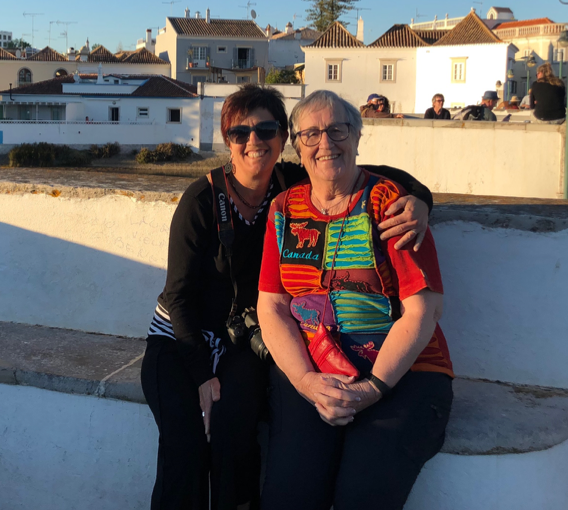 As I continue on this journey called life, I will continue to take deep breaths, to meditate as often as possible, to take long walks in the forest, to live in the moment, and try to find joy daily. I will be grateful every day for my health, my youthful mother, my vibrant sister, and my two amazing daughters. I continue to hope that we will not become one of those statistics. But if we do, I know that we will follow another big family tradition: unconditional love and support; and that makes me more grateful than ever.
As I continue on this journey called life, I will continue to take deep breaths, to meditate as often as possible, to take long walks in the forest, to live in the moment, and try to find joy daily. I will be grateful every day for my health, my youthful mother, my vibrant sister, and my two amazing daughters. I continue to hope that we will not become one of those statistics. But if we do, I know that we will follow another big family tradition: unconditional love and support; and that makes me more grateful than ever.
by Lyne Desforges, Registerd Holistic Nutritionist
An Idea is Born
I was having a cup of tea with a good friend who shares the same birth year as me and she mentioned that someone she knew had done 60 new experiences in her 60th year. The idea was so appealing to me that I decided to do the same.
So I have decided that by the time I turn 60, on September 26, 2020, I will have added 60 new experiences to my life. Although that might seem daunting, the experiences can be as simple as trying a new food and as large as river-canoeing in the Northwest Territories. The idea is to get out there and try new things.
Age is just a number, right? But 60 is a big one. Although part of me is somewhat bewildered by the fact that I am already there, another part of me sees this as an opportunity for new beginnings. It is a chance to reflect on how I want to live the next few decades of my life.
Anybody who knows me will tell you I love change and I love to try out new things, within reason. It is so easy to get comfortable in our everyday routine but life is too short not to experience it to the fullest.
Stimulating the Brain
The other reason to do this is to push myself to keep trying new things. As we get older, it is important to keep learning, to continuously stimulate our brain. Some of the best ways to do this is by learning a new language or a new instrument. A recent study by UBC of more than 100,000 students showed that those who learned a musical instrument did better in their academic courses even when controlling for socioeconomic background and other factors.
Both physical and mental challenges are great for the brain, which explains why learning a musical instrument helped so much with cognition. Need some ideas? Try a new sport, learn a new dance, do some crossword puzzles, take an online course, make a new recipe, or read a non-fiction book.
My List of New Experiences so Far
Here are some of the new experiences I have added so far to my list of 60:
- Opening my own Instagram account (trying very hard to embrace and keep up with new technology and social media).
- Going to a book launch in Toronto’s East End (it would have been easy to just stay home and avoid driving all across the GTA).
- Attending a nomination meeting for the Liberal candidate in our riding (and I am not at all political).
- Visiting new places in the Northwest Territories (every Canadian should travel north of the 60th parallel at least once in their life).
- River canoeing on the Keele river in the NWT (that one was way out of my comfort zone).
By giving myself this goal of 60 new experiences, it also forces me to get out there and see what I can do and experience in my own community, whether it is free yoga in the park, music by the lake, or a new restaurant. I have totally enjoyed adding to my list and hope to surpass the goal of 60 by my 60th birthday.
So what happens when I turn 70? Well, first I do hope I get there in good enough shape to keep experiencing life to the fullest. Why not make it 70 new experiences? Only time will tell.
In the meantime, I challenge you to add more new experiences to your life so you can enjoy it the fullest. Enjoy a little discomfort once in a while. You will be surprised by how much fun you can have!
August 2019
By Lyne Desforges, Registered Holistic Nutritionist
The Japanese call it shinrin-yoku, which translates literally to “forest bath”. So what exactly is forest bathing? Quite simply, it is being immersed in nature and connecting with it through all five senses: sight, hearing, taste, smell and touch. By engaging with your surroundings, you get closer to the natural world that surrounds you.
More Urban Than Rural
According to the United Nations, 54% of the world’s population lived in urban areas in 2014 compared to 30% in 1950. That number is predicted to climb to 66% by 2050. In Canada, the numbers are even higher: in 2017 82.18 percent of the total population lived in cities.
Benefits of Forest Bathing
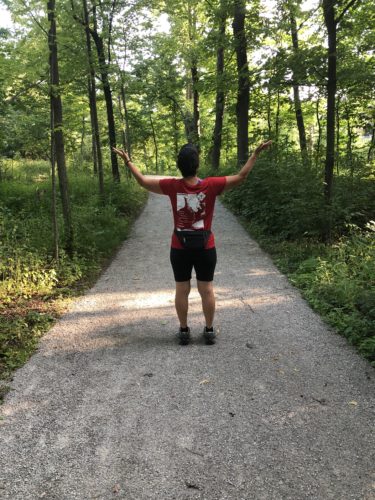
According to a 2014 study, regular forest bathing showed great benefits:
- lower heart rate
- increased energy
- decrease in symptoms of depression, fatigue, anxiety and confusion
- participants also mentioned feeling more calm and relaxed.
Mindfulness in Nature
So next time you are in the forest, take a moment to sit down and close your eyes. Listen to the sounds of birds; smell the earth and flowers; feel the soft soil and warm air around you. Open you eyes and delight in nature’s colourful canvas. Take a moment to be thankful for forests and green spaces that feed your soul.
Get Out There!
Here in Canada, we are very lucky to have access to so much forested areas. Even near densely populated areas, you can find parks, nature trails or small streams. Forest bathing is free and the mental benefits are priceless. So put on comfortable shoes, leave your earphones at home, and immerse yourself in the healing power of nature.
More Resources
For more information, check out Dr. Qing Li’s book Forest Bathing: How Tress Can Help You Find Health and Happiness or M. Amos Clifford’s book Your Guide to Forest Bathing: Experience the Healing Power of Nature.
